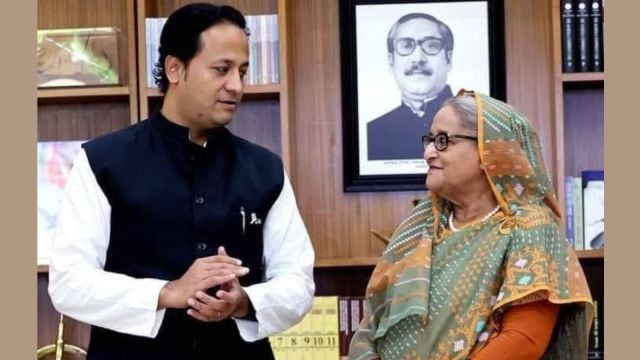Former Bangladesh minister alleges USAID, Clinton family backed plot to oust Sheikh Hasina: ‘There is a nexus’
Mohibul Hasan Chowdhury said that the violent unrest that forced Hasina to flee Bangladesh was “carefully planned” and supported by Western interests.
 "They were hell-bent on changing the government in Bangladesh," Chowdhury said. (Photo: Mohibul Hassan Chowdhoury/ Facebook)
"They were hell-bent on changing the government in Bangladesh," Chowdhury said. (Photo: Mohibul Hassan Chowdhoury/ Facebook) A former Bangladeshi minister has accused the US Agency for International Development (USAID) and the Clinton family of backing efforts that led to the ouster of former Prime Minister Sheikh Hasina in 2024. The allegations were made by Mohibul Hasan Chowdhoury, who served as a cabinet minister in Hasina’s government and was directly involved in crisis negotiations during her final months in office.
Chowdhoury spoke to RT in an interview that is set to be broadcast on Monday.
Chowdhoury told RT that the violent unrest that forced Hasina to flee Bangladesh was “carefully planned” and supported by Western interests. “Certain actions of some NGOs, especially from the United States – naming a few, I mean USAID, for example, or the International Republican Institute. They were running campaigns against our government for a while, since 2018,” he said.
https://platform.twitter.com/widgets.jsEXCLUSIVE: 🇧🇩 Sheikh Hasina's Former Aid BREAKS SILENCE & Reveals The Infamous US Power Families Who Pushed For Coup
— RT_India (@RT_India_news) November 8, 2025
RT South Asia Correspondent @Runjhunsharmas sits down with Mohibul Hasan for an explosive interview.
Coming Soon. pic.twitter.com/UN1vNcnGKv
Links to Clinton family
“There is a nexus between the Clinton family and the interim Yunus regime from a very long past,” Chowdhoury alleged. “Funding of clandestine NGOs was going on. They were hell-bent on changing the government in Bangladesh.”
He also questioned the use of US development funds. “IRI was active, USAID’s fundings were going to nowhere. Where had that money gone to? It was destined for regime change activities,” he told RT.
The 2024 riots, triggered by student protests against job quotas, escalated into nationwide violence that left over 700 people dead, according to the interim government’s estimates. Hasina, who had ruled for 15 years as head of the Awami League, fled the country as protesters stormed her residence.
Following her exit, Nobel Peace Prize laureate Muhammad Yunus became the chief adviser of the interim government.
Since Yunus took over, Bangladesh’s interim government has reportedly shifted its diplomatic focus from New Delhi toward Islamabad, in a move to rebuild ties that have remained uneasy since the 1971 war of independence.






